
Transactions of the ASABE
Scope & Guideline
Unveiling cutting-edge discoveries in agricultural sciences.
Introduction
Aims and Scopes
- Agricultural Engineering Innovations:
The journal emphasizes research on advanced engineering techniques and technologies that improve agricultural productivity and sustainability. This includes the development of new machinery, tools, and systems that enhance farm operations. - Water Management and Irrigation:
A significant focus is placed on water resource management, including irrigation strategies, water quality, and the effects of agricultural practices on hydrology. This includes modeling and simulation studies aimed at optimizing water use in agriculture. - Soil and Crop Management:
Research on soil health, fertility, and crop management techniques is a core area. This encompasses studies on nutrient management, soil erosion control, and innovative agricultural practices that enhance crop yield and quality. - Environmental Impact and Sustainability:
The journal addresses environmental issues related to agriculture, such as greenhouse gas emissions, waste management, and sustainable farming practices. Research aimed at reducing the ecological footprint of agricultural activities is prioritized. - Precision Agriculture and Technological Integration:
The integration of precision agriculture technologies, including remote sensing, UAVs, and data analytics, is a key area of focus. Studies on the application of these technologies for enhanced decision-making in farming are frequently published.
Trending and Emerging
- Robotic and Automation Technologies:
The development and application of robotics in agriculture are increasingly highlighted, reflecting a trend towards automation in tasks such as harvesting, planting, and monitoring crops. This is crucial for addressing labor shortages and improving efficiency. - Data-Driven Agriculture and Machine Learning:
There is a growing emphasis on the use of big data, machine learning, and AI to analyze agricultural systems. This trend is significant for enhancing precision agriculture practices and improving decision-making processes. - Sustainable Waste Management Practices:
Research focusing on sustainable management of agricultural waste, including manure and crop residues, is gaining importance. This includes studies on bioconversion technologies and nutrient recycling to minimize environmental impact. - Climate Resilience in Agriculture:
Emerging studies are increasingly addressing climate adaptation strategies for agriculture, including the impacts of climate change on crop yields and water availability. This theme is vital for developing resilient agricultural systems. - Integrated Pest Management Strategies:
Research on innovative pest management techniques that integrate biological control, precision application, and environmental considerations is trending. This reflects a shift towards more sustainable and effective pest control methods.
Declining or Waning
- Traditional Agricultural Practices:
Research focusing solely on conventional agricultural practices has diminished, as the field moves towards more innovative, technology-driven solutions. There is a noticeable shift towards precision farming and sustainable practices. - Basic Agricultural Chemistry:
While still relevant, studies centered solely on fundamental chemical analyses of agricultural inputs are less frequent, as multidisciplinary approaches that incorporate biological, environmental, and engineering perspectives gain prominence. - Static Crop Modeling:
Models that do not incorporate dynamic environmental interactions or real-time data are becoming less common. Researchers are increasingly adopting more complex, adaptive modeling techniques that account for variability in agricultural systems. - Generalized Environmental Assessments:
Broad studies assessing environmental impacts without specific agricultural contexts are declining. There is a trend towards focused assessments that link specific practices with measurable environmental outcomes. - Low-Tech Solutions:
Research on low-tech or traditional farming solutions is seeing reduced publication frequency, as the journal increasingly favors innovative, technology-based approaches that promise higher efficiency and sustainability.
Similar Journals

International Journal of Plant Production
Advancing sustainable agriculture through innovative research.International Journal of Plant Production, published by SPRINGER in Switzerland, serves as a leading platform for the dissemination of innovative research in the fields of Agronomy, Crop Science, and Plant Science. With an ISSN of 1735-6814 and an E-ISSN of 1735-8043, this journal has maintained its reputation by achieving a Q2 quartile ranking in both categories as of 2023, alongside notable Scopus rankings placing it in the top quartiles of its fields (Rank #105/516 and Rank #88/406, respectively). The journal's scope encompasses a wide array of topics vital to sustainable agriculture and plant production systems, making it a critical resource for researchers, professionals, and students striving for advancements in these disciplines. By fostering open scientific dialogue and supporting cutting-edge research, the International Journal of Plant Production is committed to contributing to the resolution of global food security challenges, enhancing agricultural practices, and promoting ecological sustainability.
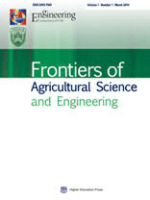
Frontiers of Agricultural Science and Engineering
Advancing agricultural innovation for a sustainable future.Frontiers of Agricultural Science and Engineering, published by HIGHER EDUCATION PRESS, is a distinguished open-access journal established in 2014, dedicated to advancing research across the fields of agricultural and biological sciences, biotechnology, and veterinary studies. With an impressive Q1 ranking in both Agricultural and Biological Sciences and Veterinary categories for 2023, this journal positions itself prominently within the academic landscape, reflecting the importance and quality of the research it disseminates. The journal serves as a vital platform for researchers, professionals, and students worldwide, featuring a broad array of studies that enhance our understanding of agricultural technologies, biotechnological innovations, and veterinary sciences. With a focus on rigor and accessibility, Frontiers of Agricultural Science and Engineering promotes the global exchange of knowledge, encouraging the collaboration that is essential for tackling contemporary challenges in these critical fields. Available online with a comprehensive range of article options, it continues to contribute to the scientific community's advancements in agricultural and biological disciplines.

Revista Ciencia Agronomica
Advancing agricultural knowledge for a sustainable future.Revista Ciencia Agronomica is a leading open access journal published by the Universidade Federal do Ceará, Departamento de Geociências, dedicated to advancing the field of agricultural sciences. Established in 2008, the journal has emerged as a significant platform for the dissemination of original research and innovative advancements in areas including agronomy, horticulture, and soil science, with a dedicated convergence of years extending to 2025. With an impactful presence in academic circles—ranking in Q3 for Agronomy and Crop Science and Soil Science and Q2 for Horticulture in 2023—this journal provides vital insights for researchers and practitioners alike. Although specific HIndex metrics are currently unavailable, the journal's Scopus rankings attest to its relevance, placing it in the 52nd, 44th, and 43rd percentiles across multiple pertinent categories. Since transitioning to an open access model in 2010, Revista Ciencia Agronomica has committed to maximizing the reach and impact of its published work, thereby ensuring valuable contributions to global agricultural knowledge.
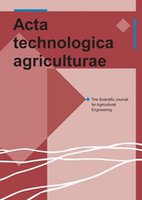
Acta Technologica Agriculturae
Empowering Researchers with Open Access to Cutting-Edge StudiesActa Technologica Agriculturae is an esteemed open-access journal published by SCIENDO, based in Poland, focusing on the interdisciplinary fields of Agronomy and Crop Science, Mechanical Engineering, and Waste Management and Disposal. Established in 2013 as an open-access platform, it has garnered attention for its commitment to disseminating high-quality research that addresses contemporary challenges in agricultural technology and environmental sustainability. With a commendable 2023 ranking in Q2 for Agronomy and Crop Science and Q3 in both Mechanical Engineering and Waste Management, the journal serves as a crucial resource for researchers, professionals, and students alike, encouraging innovative approaches and solutions. The convergence of diverse studies published from 2015 to 2024 amplifies the journal's relevance in a rapidly evolving academic landscape. Access to the journal’s articles is freely available, fostering broader dissemination and engagement within the scientific community.

AGRONOMIA MESOAMERICANA
Exploring innovative solutions in agronomy and food science.AGRONOMIA MESOAMERICANA is a distinguished open-access journal published by UNIV COSTA RICA, dedicated to advancing knowledge in the fields of agronomy, crop science, food science, and soil science. Since its inception in 1990, the journal has provided a platform for researchers and professionals to disseminate their findings, contributing significantly to the agricultural sciences. With an E-ISSN of 2215-3608, it operates from Costa Rica, specifically from the Centro Investigaciones Agronómicas, situated in San José. Despite its current classification in the Q4 quartile for 2023 in the respective fields, it aims to stimulate academic discourse and inspire innovative solutions to pressing agricultural challenges. The journal attracts a diverse audience and encourages submissions that focus on sustainable practices, food security, and environmental stewardship, making it an essential resource for researchers, professionals, and students alike seeking to enrich their understanding and share crucial insights in the agronomy landscape. Open access ensures that all published research is freely available, fostering collaboration and knowledge exchange worldwide.

AGROCHIMICA
Advancing agricultural knowledge for a sustainable future.AGROCHIMICA is an eminent journal published by PISA UNIV PRESS, dedicated to advancing the fields of Agronomy, Crop Science, Food Science, and Soil Science. With a rich history dating back to its inception in 1973, this journal has evolved through various phases of publication, illustrating its commitment to delivering quality research over several decades. Although currently categorized in the Q4 quartile across its respective disciplines, AGROCHIMICA provides a platform for foundational and innovative studies that contribute to knowledge in agricultural practices and sustainable food systems. While the journal is not open access, it remains a valuable resource for researchers, professionals, and students interested in Italy's and the global agricultural landscape, fostering a greater understanding of the complexities within these interconnected fields. The ISSN associated with this journal is 0002-1857, and it is published from Pisa, Italy, addressing the evolving challenges in agriculture with a spotlight on rigorous scientific inquiry.
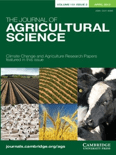
JOURNAL OF AGRICULTURAL SCIENCE
Advancing Agricultural Innovation Through ResearchJOURNAL OF AGRICULTURAL SCIENCE, published by Cambridge University Press, stands as a pivotal resource in the field of agricultural research. With a rich history dating back to 1905, this esteemed journal has consistently delivered cutting-edge scholarly articles that address pressing issues in agronomy, crop science, animal science, and genetics. Currently holding a Q2 ranking in Agronomy and Crop Science and Animal Science and Zoology, and a Q3 in Genetics, it reflects a robust impact within the academic community, contributing to innovative practices and technologies in agriculture. Indexed in Scopus, its authors benefit from broad visibility, supported by a strong readership among researchers, professionals, and students alike. While the journal does not currently offer open access, its rigorous peer-review process ensures that published works meet the highest scholarly standards, fostering a rich environment for knowledge exchange and advancement in agricultural science.
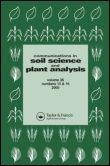
COMMUNICATIONS IN SOIL SCIENCE AND PLANT ANALYSIS
Elevating the Standards of Soil and Plant ResearchCOMMUNICATIONS IN SOIL SCIENCE AND PLANT ANALYSIS, published by Taylor & Francis Inc, is a prestigious journal dedicated to advancing research in the fields of agronomy, crop science, and soil science. Established in 1970, the journal has maintained a significant presence over the years, with a commitment to publishing high-quality, peer-reviewed articles that contribute to the understanding of soil and plant interactions. With an impressive Q2 ranking in both Agronomy and Soil Science, it positions itself as a vital resource for researchers, professionals, and students alike, keen on exploring innovative solutions to contemporary agricultural challenges. Although it currently does not provide open access, the journal ensures wide dissemination through its established subscription services. The journal's focus on empirical research, methodologies, and technological advancements in soil management and plant nutrition makes it an essential platform for disseminating knowledge and fostering discussions within the scientific community. Located in the heart of Philadelphia, USA, it remains a significant contributor to the global dialogue on sustainable agriculture and environmental stewardship.
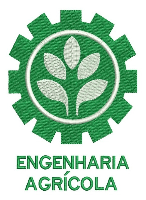
Engenharia Agricola
Bridging knowledge and practice in agricultural sciences.Engenharia Agricola, published by the SOC BRASIL ENGENHARIA AGRICOLA, is a crucial open-access journal that has been at the forefront of agricultural engineering research since its inception in 1981. With an E-ISSN of 1809-4430 and an ISSN of 0100-6916, this journal stands out in the field by providing a platform for disseminating innovative studies and advancements in agricultural practices and technologies. Based in Brazil, the journal emphasizes global perspectives in agricultural and biological sciences, currently positioned in the Q3 quartile of its category, as recognized in the 2023 Scopus Ranks, where it ranks 97 out of 193 publications. Researchers, professionals, and students can access a plethora of high-quality articles that contribute to sustainable agronomy, agricultural mechanics, and resource efficiency across various environments, with open access since 2004, ensuring that critical knowledge is readily available to all stakeholders in the field.

NUTRIENT CYCLING IN AGROECOSYSTEMS
Unlocking the Secrets of Agroecosystem ResilienceNUTRIENT CYCLING IN AGROECOSYSTEMS is a premier academic journal published by SPRINGER, dedicated to advancing the field of agroecosystem research. With an ISSN of 1385-1314 and an E-ISSN of 1573-0867, the journal has achieved remarkable standing, being ranked in the Q1 category for both Agronomy and Crop Science and Soil Science as of 2023. Over the years, it has emerged as an essential platform for interdisciplinary research focused on nutrient management, soil health, and sustainable agriculture practices, reflecting a growing global interest in environmental sustainability. The journal's impactful contributions are highlighted by its impressive Scopus rankings, where it stands at #68/406 and in the 83rd percentile for Agronomy and Crop Science, and #37/159 with a 77th percentile in Soil Science. Researchers, professionals, and students are invited to explore open access options for published articles, facilitating wider dissemination of knowledge in nutrient cycling and its critical implications for agroecological systems. Join the discourse by submitting your research and contributing to the ongoing conversation in this vital area of study.